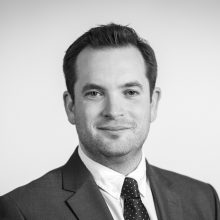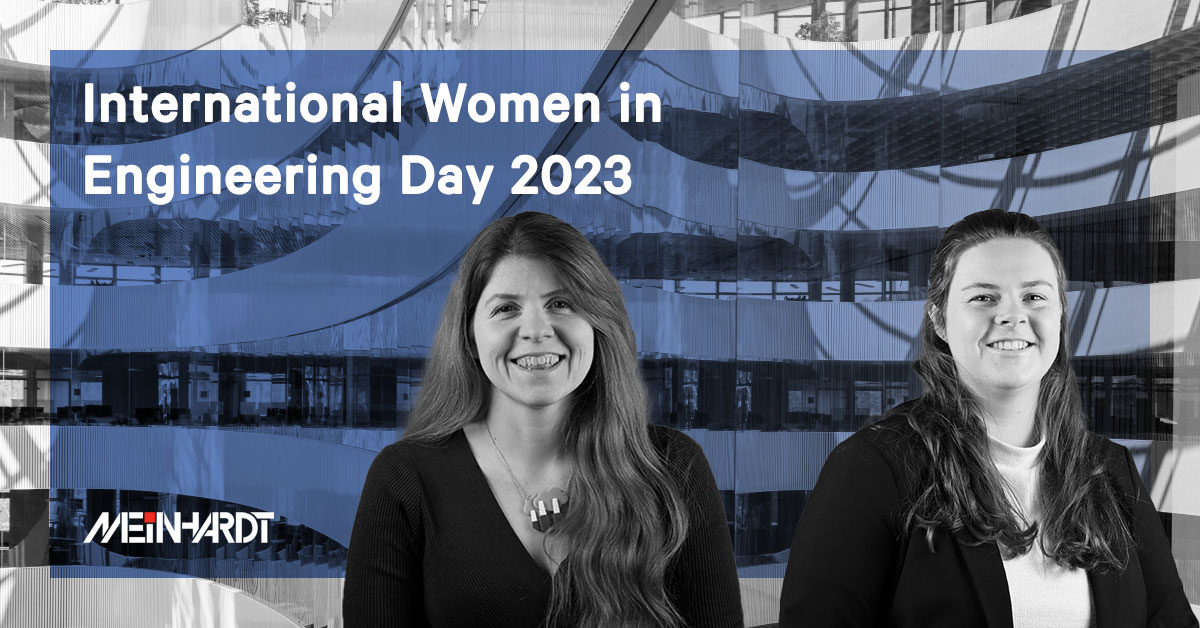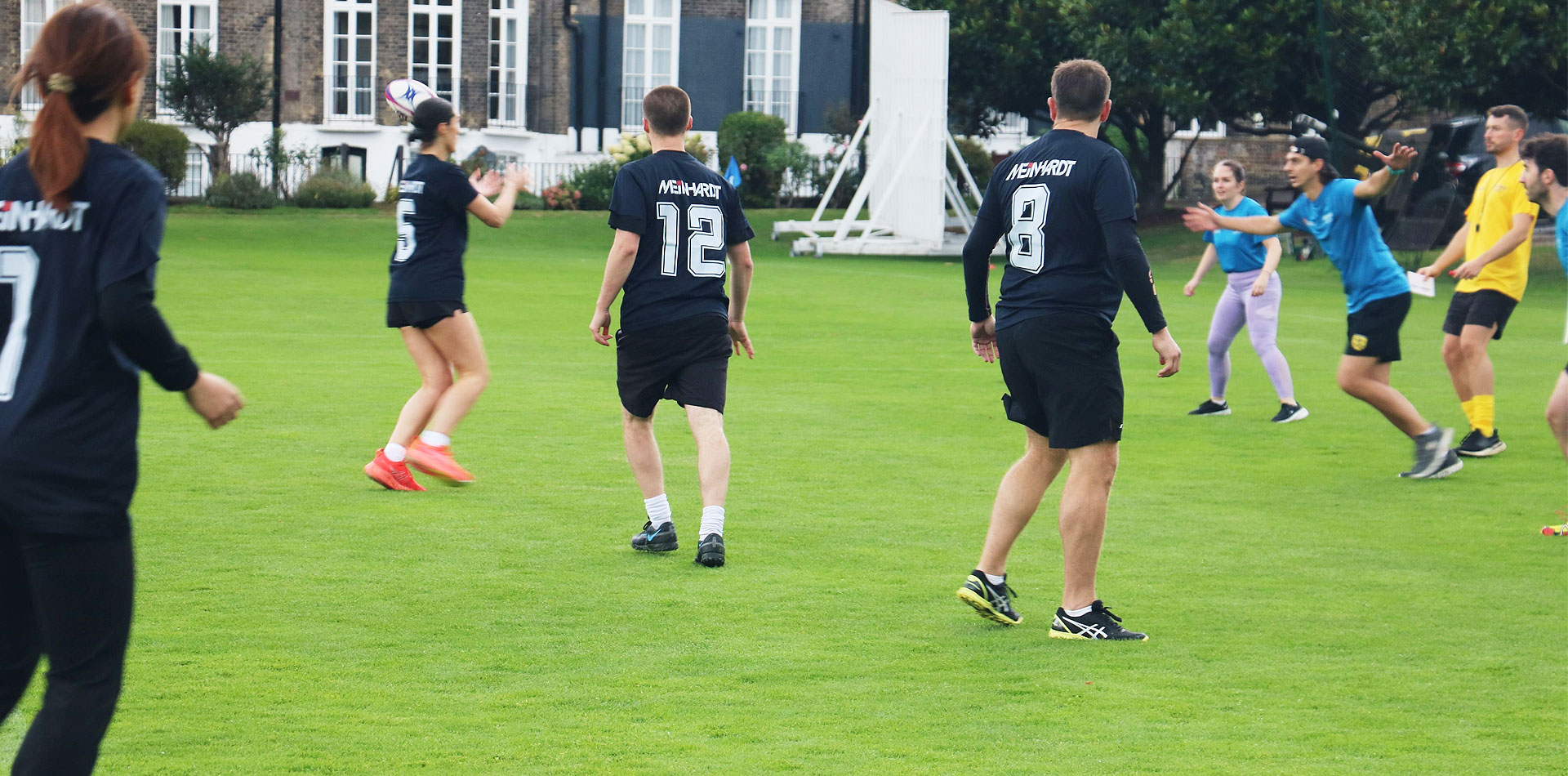Meinhardt Strengthens Australian Business with Acquisition of Bonacci Group
February 1, 2020
Meinhardt (UK) announces a quartet of appointments within its building services (MEP) and infrastructure teams
May 16, 2024
Mark Bryan
Board Director
Launched in 2014, International Women in Engineering Day is a day that is celebrated around the world to raise the profile of women who work within the industry. In celebration of the day, we sat down with Camille Destres and Clodagh Parkinson and asked a series of questions to find out about their roles as women in engineering at Meinhardt.
What’s your role at Meinhardt (UK)?
Camille: I’m an Associate in the Façade Engineering team.
Clodagh: I’m an MEP Electrical Intern.
How long have you worked for the company?
Camille: I have worked at Meinhardt for seven years.
Clodagh: I’ve been with Meinhardt for five months.
What does your role entail?
Camille: It usually involves looking after a core number of projects but it is quite varied. I spend some days in the office either preparing designs or attending meetings, some days on site and some days travelling to testing facilities.
Clodagh: Assessing electrical loads of new builds, lift traffic analysis and design layouts.
What got you into Engineering/what inspired you to become an engineer?
Camille: I started with studying Mathematics for a couple of years before realising that I preferred applied sciences to theory. This brought me to the UK where the University of Bath offered a civil and architectural engineering degree at the time which seemed like the right balance between many different fields of engineering. I discovered Façade Engineering while in Bath where the CWCT (Centre of Window and Cladding Technology) is based, and it seemed like both a broad, and at the same time specialised field, with different sets of challenges.
Clodagh: I always loved maths, science and art in school and felt that engineering was a great way to combine practical problem solving and creativity.
In celebration of International Women in Engineering Day, what advice would you give to women who are looking for a career in Engineering?
Camille: Engineering is not one field and one way to work. As a Façade engineer, I am lucky to be exposed to many of the building engineering fields, from structures, to sustainability, accessibility, acoustics etc. There is something for everyone.
Clodagh: It can be such a rewarding profession to be able to physically see a finished project and know that you’ve contributed to it. There are also so many options in terms of what kind of engineering you want to specialise in – there’s a sector for everyone! Even if you decide later that you don’t like it anymore, it teaches you such valuable soft skills such as problem solving, communication and time management that switching fields is very possible.
Do you think there are challenges for women within the industry?
Camille: There are challenges in the Construction industry which affect all, but can affect women, especially with caring responsibility, more than most. Due to the flow of projects, workload tend to vary from week to week and it can be hard to manage against personal responsibilities, especially if travel is required. I have learnt that it is important to speak up and ask for support if the workload is too much and help is needed whether from colleagues, family or close ones.
Clodagh: It is still a male dominated field but even over the past few years I’ve been able to notice that there are many more women in higher positions and more promotion to try get young girls into STEM. It can of course improve; once there is a better gender balance at the very top level, younger engineers are given more hope that they can really succeed in the industry.
What are your hopes for the future for women in Engineering?
Camille: I would like women in Engineering to become such commonplace that it does not need to be highlighted or celebrated anymore. Façade engineering is a field with a high percentage of women but this should extend to all fields of engineering.
Clodagh: I hope to see more women get promoted to the highest levels in recognition of the work they do, and so as to inspire younger female engineers.
What’s the best part about your job?
Camille: Walking around London with my son and showing him buildings that I have worked on.
Clodagh: Being able to work as a team is good fun. I can do the work I’m given but feel comfortable enough to ask others about something that’s unclear or their opinions on an idea etc.
This year’s International Women in Engineering Day theme is all about making safety seen, #makesafteyseen. How do you ensure that safety is encompassed within your role?
Camille: My goal is to make project that I participate on safe for all to build, maintain and use. People are all different and our designs should be safe for all, regardless of gender, age or ability.



